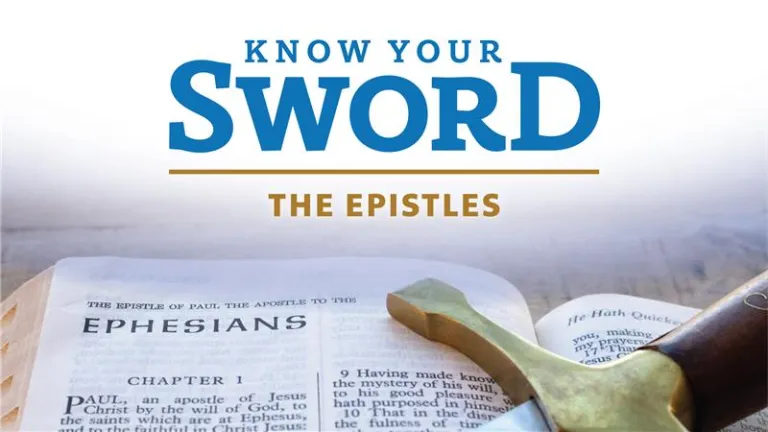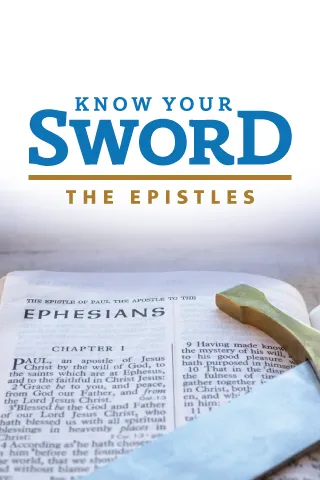Ephesians Part 05

Paul’s intention is not to condemn—it is to stir remembrance and gratitude. He wants his readers to never forget what they were before God intervened in their lives. Before grace, they were strangers.
In Ephesians 2:11, Paul reminds his readers of their past—a reminder that serves both as a warning and as a call to gratitude. He writes,
“Therefore remember that you, once Gentiles in the flesh—who are called Uncircumcision by what is called the Circumcision made in the flesh by hands.”
Paul’s audience in Ephesus was largely Gentile. They had not been part of the physical covenant people of Israel. They were, as he says,
“without Christ, being aliens from the commonwealth of Israel and strangers from the covenants of promise, having no hope and without God in the world.”
These few words describe the bleakness of life apart from God’s calling. The Gentiles had been outside the covenant relationship that God established with Israel. They were not citizens of His kingdom and had no share in His promises. They did not know His law—the instructions that shaped Israel’s national, civil and spiritual identity. They were unfamiliar with the clean and unclean distinctions in food, the observance of the Sabbath rest, the civil and health laws, and the moral boundaries that governed Israel’s community life. These laws served not only to bless and protect Israel but also to set them apart as a distinct people belonging to God.
Without that covenant connection, the Gentile world was spiritually adrift. They had no hope. Physically, they were outside the blessings of the nation God had chosen to work through. Spiritually, they were blind to the plan that God was unfolding in His own time. As The Expositor’s Bible Commentary explains, Paul’s phrase “without God” (atheoi) does not mean that the Gentiles were forsaken by God; rather, they were ignorant of Him. They lacked the true knowledge of the living God, and as a result, their worship turned toward idols and vain philosophies. They did not reject a known God—they simply had never known Him. The tragedy of their condition lay not in willful rebellion alone but in spiritual blindness.
As The Message of Ephesians observes, the Gentiles were “hopeless” because, although God had planned from the beginning to include them in His family, they were unaware of that promise. They lived without the sustaining hope that knowledge brings. They were “godless” not because God had withheld Himself, but because they had suppressed the truth that He revealed through creation. They turned instead to idols—to images of stone and wood—exchanging the glory of the Creator for the creation itself. It is no exaggeration, then, for Paul to describe the Gentile world as both hopeless and godless.
But Paul’s intention here is not to condemn—it is to stir remembrance and gratitude. He wants his readers to never forget what they were before God intervened in their lives. Before grace, they were strangers. Before their calling, they were cut off. Before mercy, they were dead in sin. The Message of Ephesians commentary captures this beautifully: “There is one thing in particular which we are commanded never to forget. This is what we were before God’s love reached down and found us. For only if we remember our former alienation, shall we be able to remember the greatness of the grace which forgave and is transforming us.”
Without God, they had no citizenship (Greek politeia) in His Kingdom. The Expositor’s Bible Commentary notes that this term implies more than just residence—it speaks of belonging, of having legal standing in a nation. The Gentiles were not citizens of God’s commonwealth. They were outside the constitution, so to speak, that defined Israel’s relationship with God—a constitution given at Sinai and sealed by covenant. Yet now, through Christ, they are no longer foreigners or outsiders but fellow citizens with the saints, and members of God’s own household (as Paul will later declare in verse 19).
We can consider how these words apply to those who choose not to have a relationship with God today. There are many who could know God yet choose not to in an act of willful blindness. These words are the antidote to this mindset.
UYA Team | uya@ucg.org
United Young Adults (UYA) primarily serves the 18–32-year age group for the United Church of God. There are three main areas of contribution to the lives of the young adults: Promoting Spiritual Growth, Developing Meaningful Relationships and Making the Most of Your Talents. The Know Your Sword series is a daily expository message introducing God’s Word from a trusted perspective.


